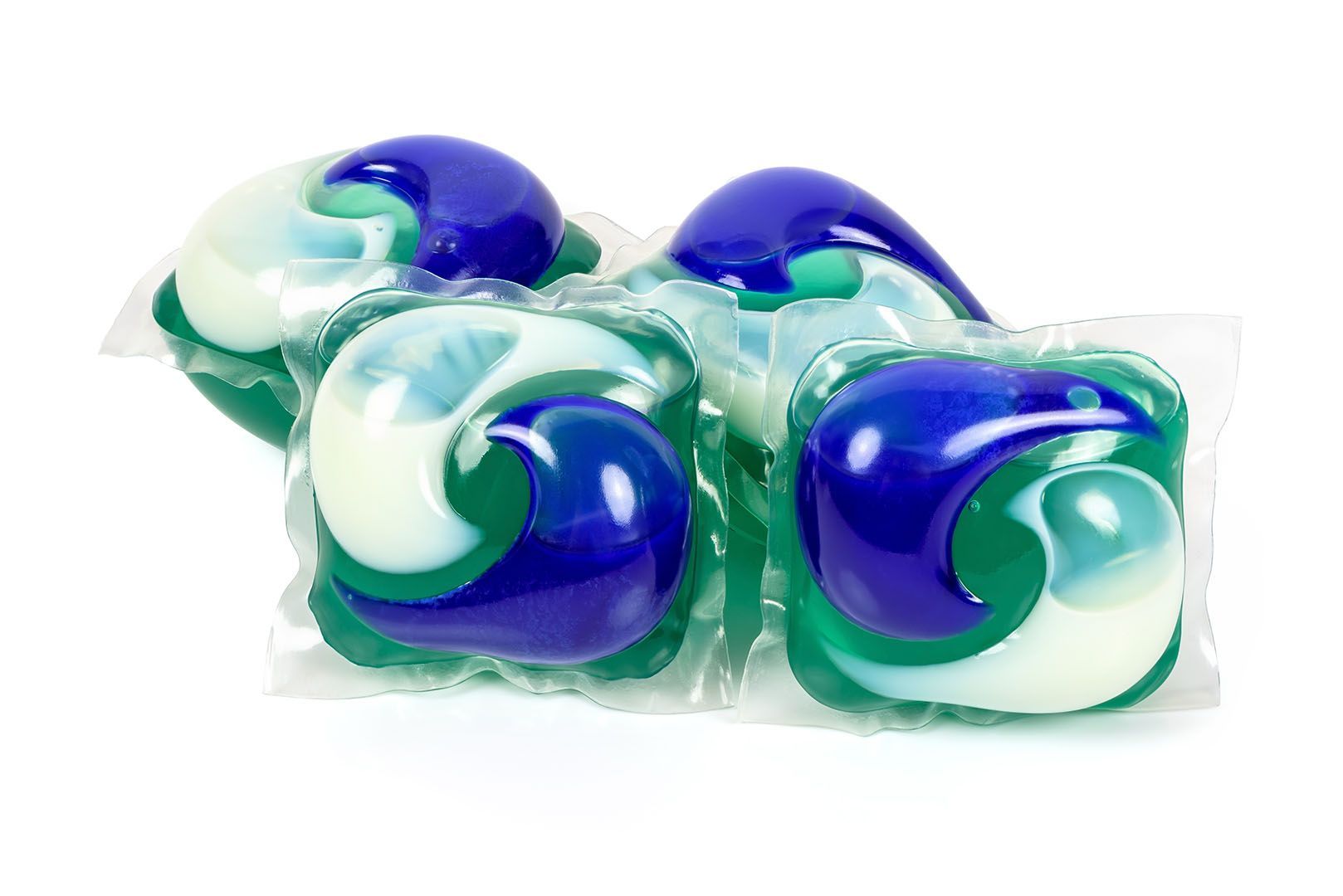Do Detergent Pods Clog Drains?

Laundry detergent pods have become a go-to for their convenience and mess-free use — but with that ease also comes growing concern. Homeowners are starting to ask: Can detergent pods actually clog drains? If you’ve noticed soap scum in your sink or slow-draining pipes, you might wonder whether your detergent is to blame.
While pods like Tide have transformed how we do laundry, it's important to understand how they interact with your plumbing system. Let’s break down the facts about detergent pods, their potential to clog pipes, and how to avoid plumbing issues down the line with Superior Plumbing.
Can Detergent Pods Actually Clog Drains?
Detergent pods like Tide Pods are designed to dissolve completely in water but under the wrong conditions, they can contribute to clogs.
If a pod doesn’t fully dissolve during a wash cycle, the leftover residue or film can build up in your machine’s drain, filter, or even the pipes over time. Most clogs caused by laundry detergents aren’t due to the products themselves, but rather user error.
Using too much detergent (especially in high-efficiency (HE) machines) can leave behind excess suds and residue that don’t fully rinse away, leading to buildup in the washer drum, drain hoses, or plumbing over time.
Similarly, tossing detergent pods directly into a cold wash cycle or overloading the machine can prevent them from dissolving properly. This leftover film can stick to internal parts or settle in filters and drains, eventually contributing to blockages.
What Causes a Detergent Pod To Not Dissolve Properly?
Improper use is the leading cause of undissolved pods and detergent-related clogs. Common mistakes like washing in cold water, overloading the machine, or placing the pod incorrectly can interfere with the dissolving process, leaving behind residue that may build up over time. The good news? A few simple habits can prevent most issues.
Place the pod first, not last
Always toss the pod into the empty washer drum before adding clothes. Placing it on top of the laundry or in the detergent drawer can block water flow and keep the pod from dissolving fully.
Use the right water temperature
Pods dissolve best in warm or hot water. If you're using cold cycles, consider switching to a cold-water-specific detergent or pre-dissolving the pod in warm water first.
Don’t overload the washer
Overstuffing your washer restricts movement and water flow, making it harder for the pod to break down. Leave enough space for clothes to move freely.
Keep your washer clean
Routine maintenance matters. Clean your washer drum and drain filter regularly to prevent residue buildup that can contribute to drainage issues or odors.
What Should I Do If I Suspect a Detergent Pod Has Clogged My Drain?
If your washing machine is draining slowly, backing up, or giving off a strange odor, you might be dealing with a partial or full clog in the laundry drain, and detergent pods could be part of the problem.
To clear a clogged laundry drain, begin by inspecting the drain hose and pipe for any visible lint or debris and remove what you can. If the clog isn’t immediately accessible, try using a plunger, a drain snake, or a combination of boiling water and baking soda to break it up.
For tougher clogs, a commercial drain cleaner may help — but be sure it’s safe for your plumbing system. If the blockage persists, it’s best to call a professional plumber at Superior Plumbing to avoid damage and ensure the drain is thoroughly cleared.
If you suspect detergent residue is continuously clogging your laundry drain, try these tips:
Run a hot water flush
After doing laundry with pods, run a short hot water cycle or pour boiling water down the drain to help dissolve any remaining residue that could cause clogs over time.
Avoid excessive detergent
More soap doesn’t mean cleaner clothes. Using too much detergent (especially with pods) can leave behind sticky residue. Stick to the manufacturer’s recommended amount.
Clean the drain regularly
A great DIY maintenance habit to incorporate is flushing your washing machine drain monthly with a mix of hot water, baking soda, and vinegar monthly to break down soap scum and
prevent buildup.
Consider liquid detergents
Liquid detergents tend to dissolve more easily than pods or powders, especially in cooler water. If clogs are a recurring issue, switching may help.
Is the Pod Film Biodegradable?
Yes, most detergent pods use a water-soluble film made from polyvinyl alcohol (PVA), which is designed to dissolve completely during the wash cycle. According to the American Cleaning Institute, detergent-grade PVA is engineered to biodegrade quickly (typically within hours) during standard wastewater treatment and has also shown the ability to break down in natural environments like rivers.
However, concerns remain. If pods aren’t used properly, the film may not fully dissolve, contributing to potential plumbing or environmental issues. Additionally, the plastic outer packaging that contains the pods adds to household waste. To minimize impact, always follow usage instructions and dispose of packaging responsibly.
Unclog Your Drains with Superior Plumbing
If you’re dealing with a stubborn clog from detergent pods or any other laundry buildup, don’t let it disrupt your day. The licensed professionals at Superior Plumbing are here to help restore proper flow and prevent future issues.
Call Superior Plumbing today to schedule your drain cleaning or inspection — your pipes will thank you!
